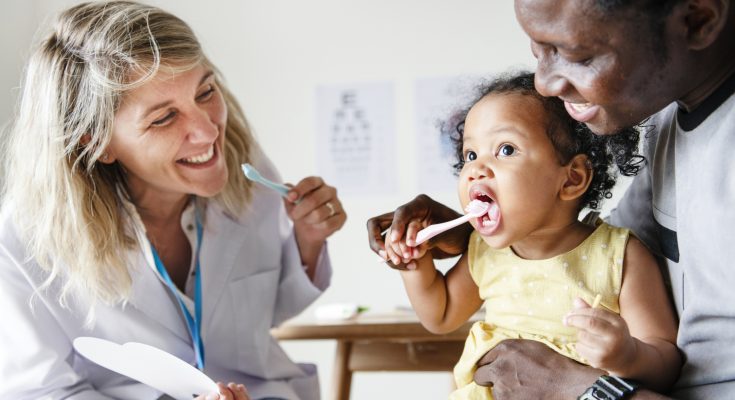Did you know you can start dental visits when your child is a baby?
Consider an initial visit to a pediatric dentist before your child turns 1. A pediatric dentist can examine your child’s teeth, review proper oral care instructions and identify decay or signs involving early dental development.
Infant Teeth Care at Home
Teeth are vulnerable to decay as soon as they appear in the mouth. When your child’s first tooth comes in, it’s time to start practicing good oral care habits.
• After every feeding, wipe your baby’s teeth and gums clean with a soft, damp washcloth or gauze pad.
• Avoid letting your baby fall asleep with a bottle. Sugars and acids in milk, formula or fruit juice can pool around the teeth, causing discoloration and decay. Since breast milk contains sugar, decay also can occur when a baby falls asleep while breast-feeding.
• Give your baby fluoridated water to help reduce tooth decay. If you don’t have access to a fluoridated water supply, use fluoride tablets, drops or gel. You can also have topical fluoride treatments applied at the dental office.
• Ensure your baby has a balanced diet that’s low in sugar and starch and high in calcium. Milk, cheese and yogurt are calcium-rich and help build strong teeth.
Dental Care as Kids Grow
By age 3, children should be brushing their own teeth under adult supervision. Daily flossing should start once all the primary teeth are in or when teeth are touching each other. By age 8, kids should be able to brush and floss by themselves, with occasional checks.
It’s recommended that children see a dentist every six months, just like adults should.
Visit deltadentalins.com/oral_health for additional information about caring for young teeth and other oral health topics.












